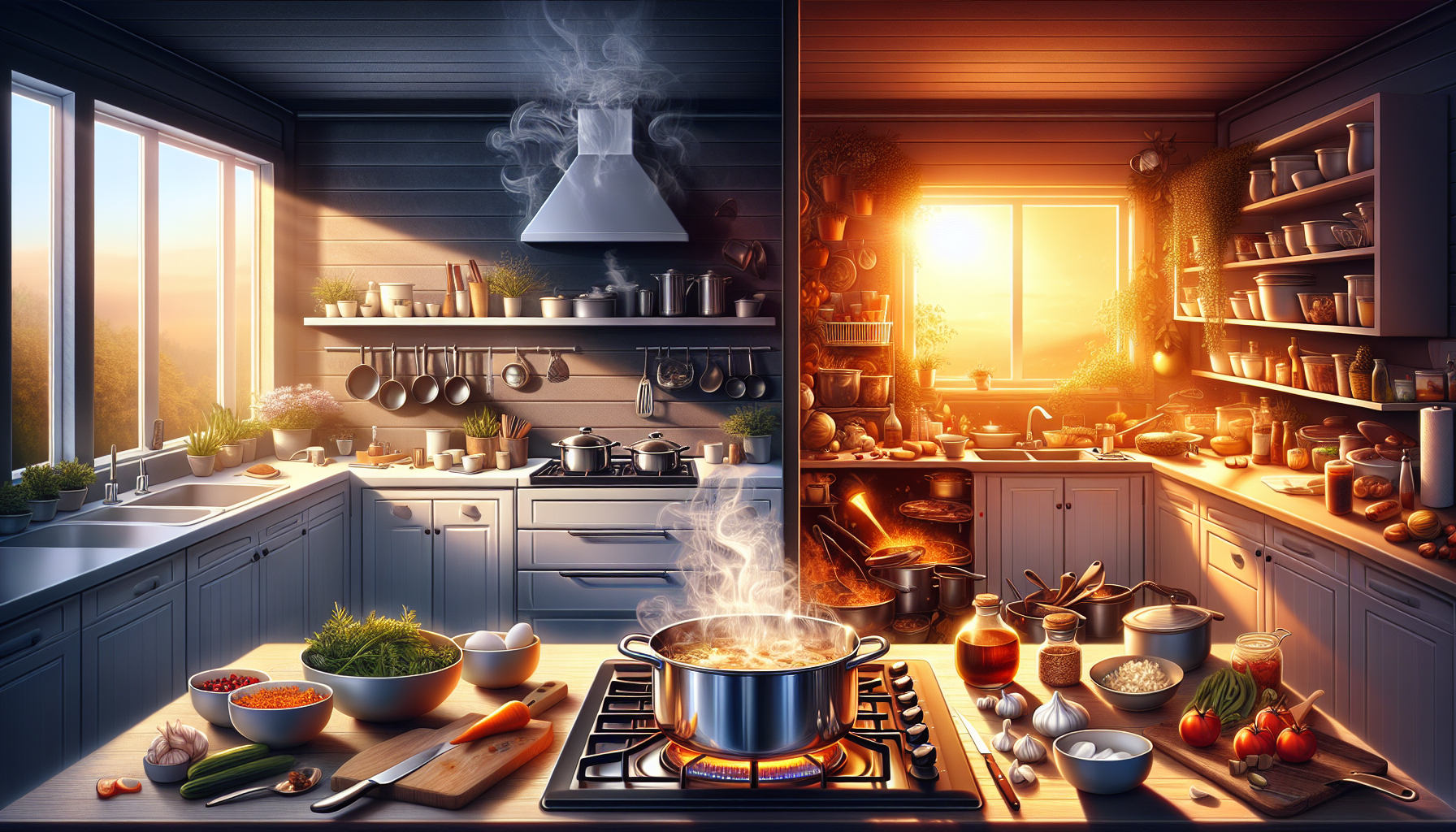Are you a solo cook wondering if it takes more time to prepare a meal for one than it does for multiple people? Well, you’re in the right place. In this article, we’ll explore the time dynamics of solo cooking versus cooking for a group. Whether you’re looking for tips to save time or just curious about the differences, we’ve got you covered. So, let’s dive in and find out if flying solo in the kitchen really means spending more time than cooking for a crowd.
Is Solo Cooking More Time-Consuming Than Cooking for Multiple People?
When it comes to cooking, whether you are preparing a meal just for yourself or for a group of people, time management plays a crucial role. Many individuals believe that solo cooking is more time-consuming compared to cooking for multiple people. However, there are several factors to consider that may challenge this notion. In this article, we will explore the different aspects of solo cooking and cooking for multiple people to determine which option requires more time and effort.

Less Prep Work Required for Solo Cooking
One advantage of solo cooking is the reduced amount of prep work required. When you prepare a meal only for yourself, the amount of chopping, slicing, and ingredient preparation is significantly less compared to cooking for a larger group. You can save time by skipping certain steps or using pre-cut ingredients, allowing you to dive straight into the cooking process. This streamlined approach to prep work can make solo cooking less time-consuming than cooking for a group.
Efficiency in Cooking Techniques
In addition to minimal prep work, solo cooking allows for greater efficiency in cooking techniques. When cooking for multiple people, you may have to utilize larger pots and pans, which require more time and energy to heat up and cook evenly. On the other hand, when cooking for yourself, you can utilize smaller cookware that heats up rapidly, resulting in faster cooking times. This efficiency can help reduce overall cooking time, making solo cooking a viable option for those seeking to save time in the kitchen.
Time Spent on Cleaning and Dishwashing
One factor that often goes unnoticed is the time spent on cleaning and dishwashing. When cooking for multiple people, the number of utensils, pots, and pans used increases, leading to more extensive cleaning after the meal. Dishwashing and cleaning can be time-consuming and can significantly extend the overall time spent in the kitchen. In contrast, solo cooking involves fewer utensils and cookware, resulting in less time spent on post-cooking cleanup. This advantage can make solo cooking more time-efficient when considering the entire cooking process.
Availability of Pre-Packaged Ingredients for Single Servings
The market is now catering to the growing number of individuals who cook for themselves. Pre-packaged ingredients specifically designed for single servings have become increasingly popular. These pre-packaged options eliminate the need for measuring and portioning, saving valuable time in the kitchen. Whether it’s pre-sliced vegetables or pre-portioned cuts of meat, these ingredients are convenient and reduce the time needed for meal preparation. This accessibility of pre-packaged ingredients for solo cooking contributes to its time-saving nature.

More Time Needed to Plan and Shop for Multiple People
While solo cooking may require less time for prep and cooking, planning and shopping can be more time-consuming for individuals cooking for multiple people. When cooking for a larger group, you must consider the dietary preferences and restrictions of each individual. This means more extensive meal planning, coordination of ingredients, and potentially visiting multiple stores to find everything you need. In contrast, solo cooking allows for more flexibility and less time spent on planning and shopping, making it a more efficient option when time is of the essence.
Cooking Time is Often Reduced When Cooking in Larger Quantities
Though the preparation and cleanup might seem more time-consuming when cooking for multiple people, the actual cooking time can be significantly reduced. When you cook in larger quantities, the time needed for each recipe remains relatively constant, regardless of the number of servings. For example, if it takes 30 minutes to bake a casserole for one person, it will still take roughly the same amount of time to bake the same casserole for multiple people. This time-saving advantage of cooking for multiple people may compensate for the additional time spent on meal planning and clean-up.
The Role of Multitasking in Time Management
Effective time management is key when it comes to cooking. An advantage of solo cooking is the ability to multitask efficiently. You can focus solely on the task at hand without having to divide your attention among multiple dishes or the needs of different individuals. This concentrated effort can lead to more streamlined cooking and potentially reduce cooking time. On the other hand, cooking for multiple people requires more juggling and switching between various elements, which may prolong the overall cooking process. Therefore, if time is a significant concern, solo cooking provides an advantage in terms of multitasking capabilities.
Factors Influencing Cooking Time for Single Servings
While solo cooking generally allows for shorter cooking times, certain factors can influence the overall duration of the process. One such factor is the complexity of the recipe. Intricate recipes with multiple steps or techniques may require more time, regardless of serving size. Additionally, the type of ingredients used can also affect the cooking time. For instance, certain cuts of meat or vegetables may need more time to cook thoroughly, extending the overall cooking process. By considering these factors and choosing recipes accordingly, you can optimize your time spent in the kitchen when cooking for yourself.
Flexibility in Meal Planning for Solo Cooking
One significant advantage of solo cooking is the flexibility it offers in meal planning. When you cook for multiple people, you often have to consider their preferences, dietary restrictions, and taste preferences. This can limit your options and require more time spent deciding on suitable recipes. In contrast, when cooking for yourself, you have the freedom to experiment with various dishes, flavors, and ingredients without the constraints of catering to others. This flexibility allows you to streamline meal planning and choose recipes that require less time and effort.
The Importance of Meal Prepping for Solo Cooking
Lastly, the importance of meal prepping cannot be understated when it comes to time management in solo cooking. By dedicating a specific time in your week to prepare meals in advance, you can significantly reduce the time spent cooking on a daily basis. With meal prepping, you can portion out ingredients, pre-cook certain components, and have everything ready to assemble quickly when it’s time to eat. This approach not only saves time but also ensures that you have nutritious and delicious meals readily available. Investing a little extra time upfront can lead to significant time savings throughout the week.
In conclusion, while the perception may be that solo cooking is more time-consuming than cooking for multiple people, a closer examination reveals several advantages that make it a viable choice for those seeking efficient time management in the kitchen. With less prep work, efficient cooking techniques, reduced time spent on cleaning, the availability of pre-packaged ingredients, and flexibility in meal planning, solo cooking can be a time-saving option. However, it’s important to consider factors such as meal complexity and cooking time for single servings. By utilizing these strategies and acknowledging the benefits of solo cooking, you can make the most of your time in the kitchen while satisfying your culinary needs.
